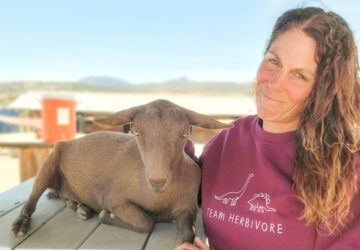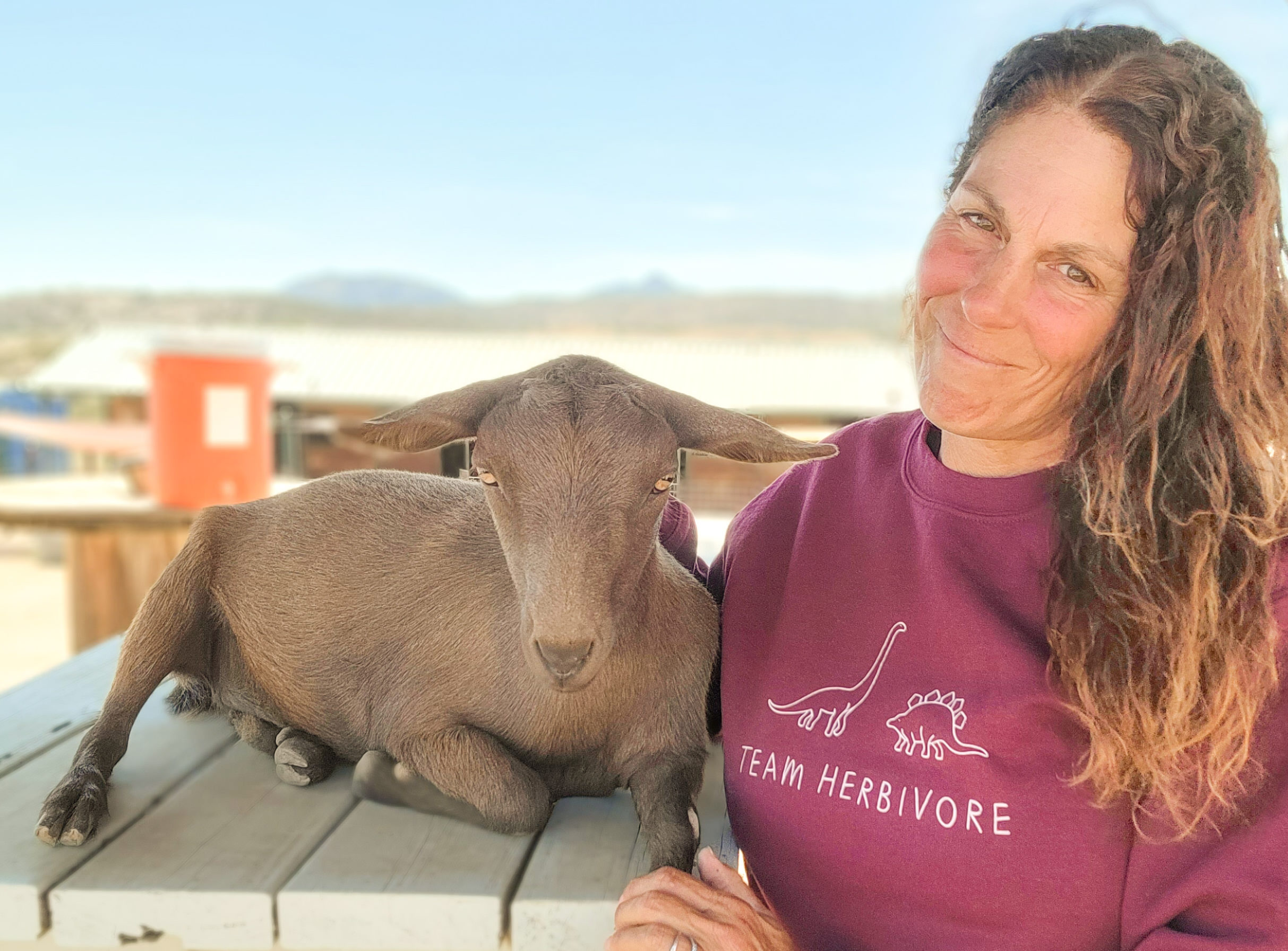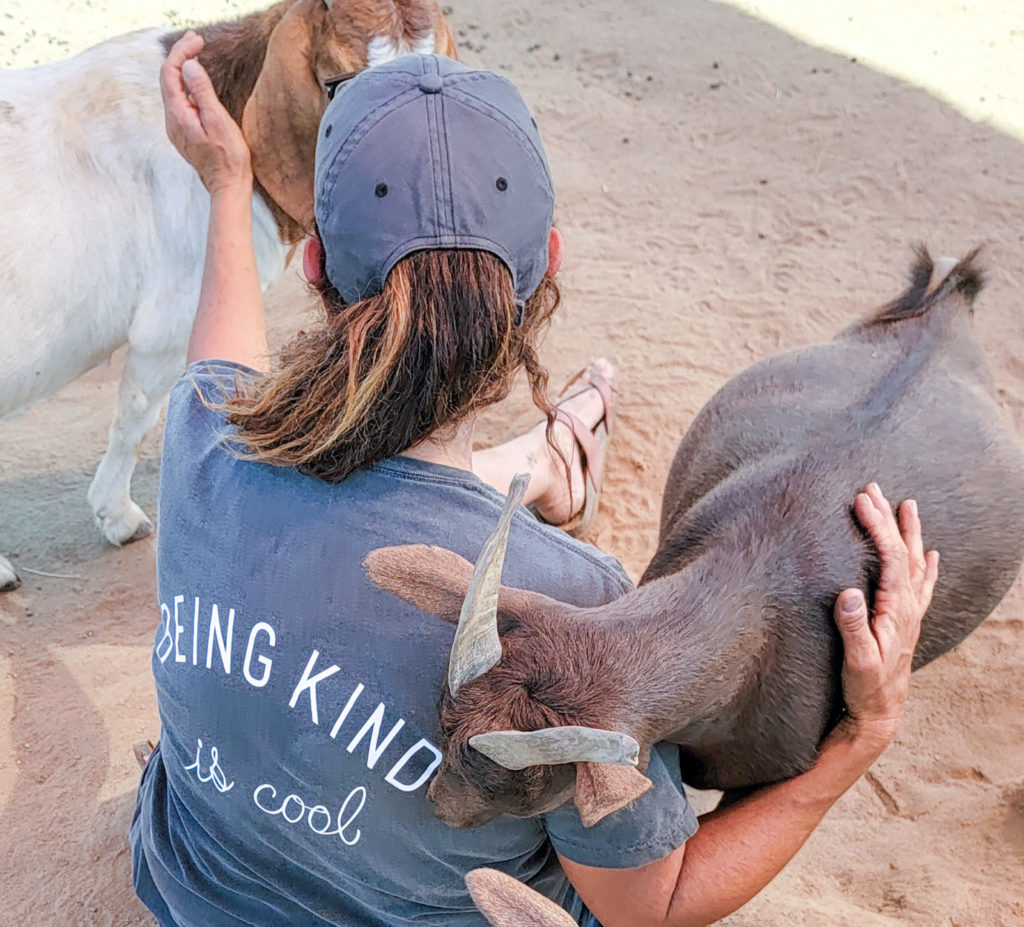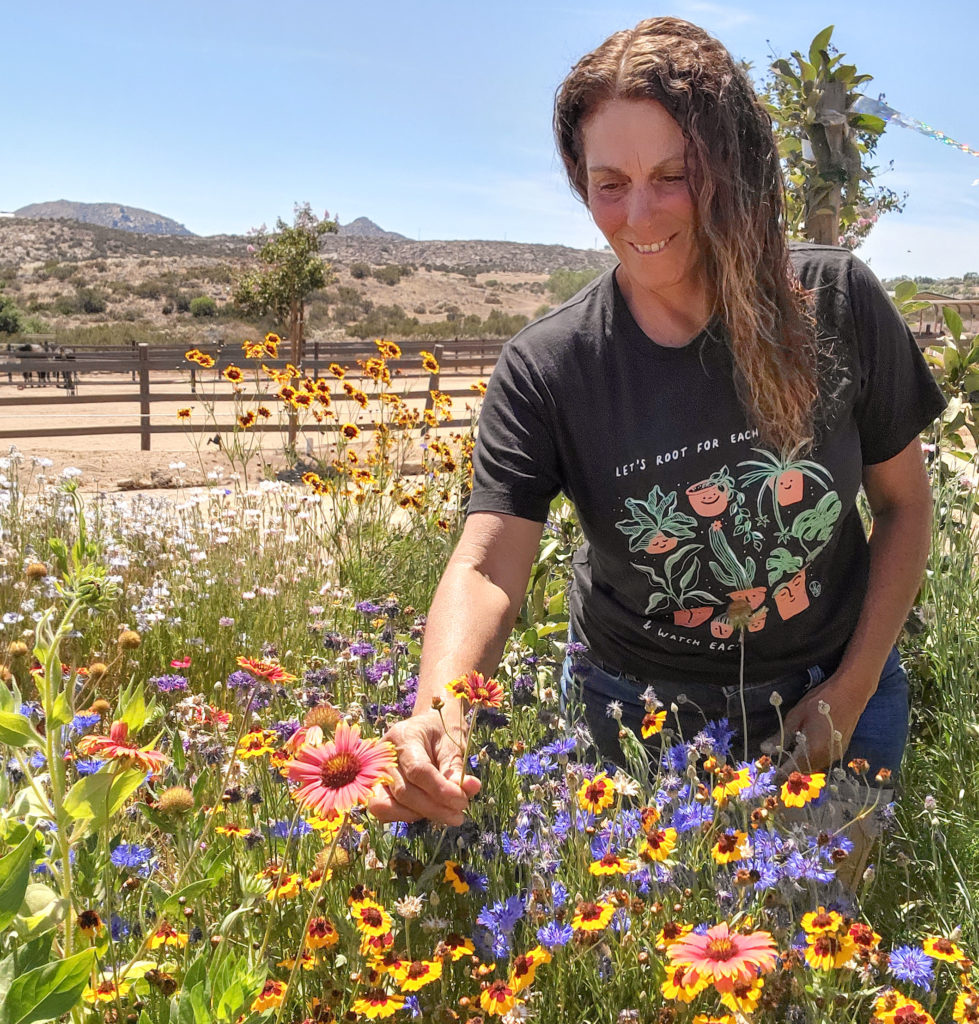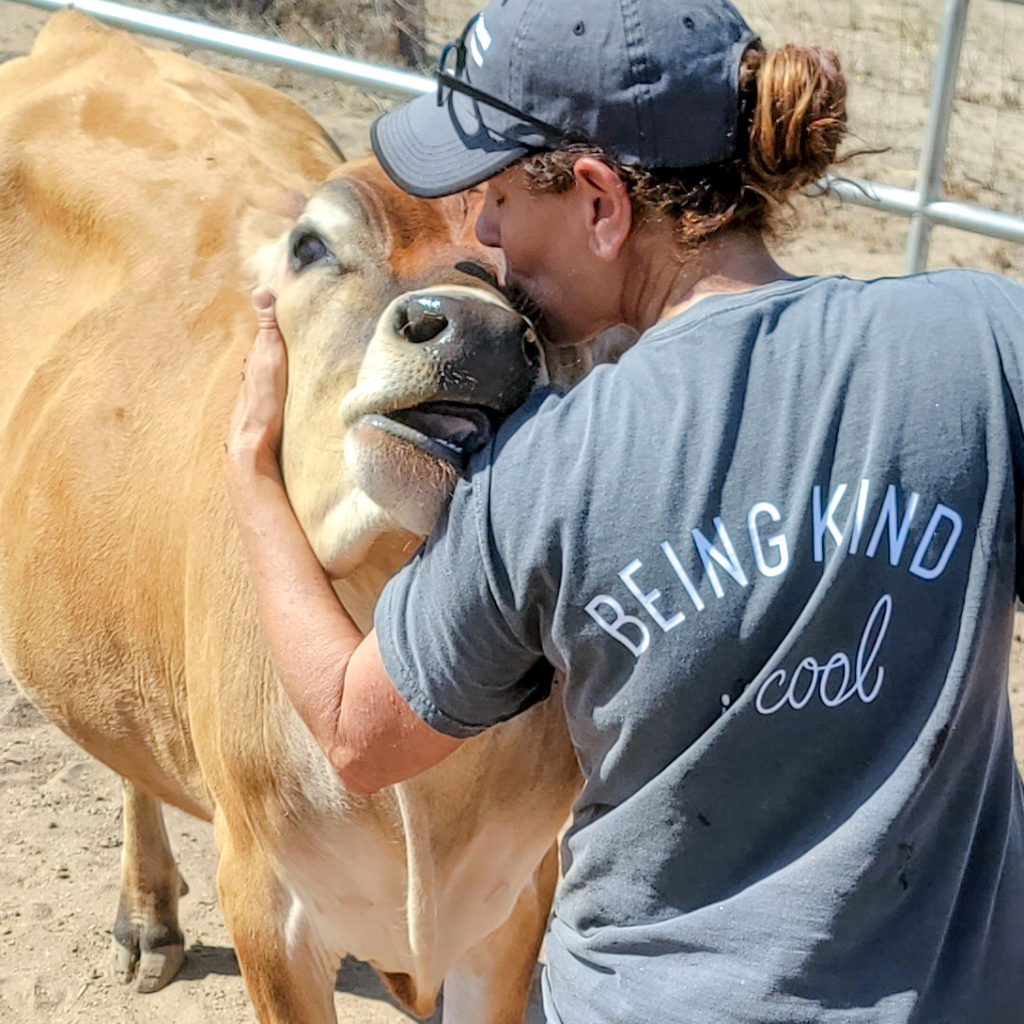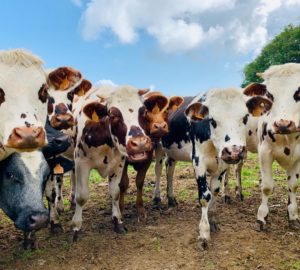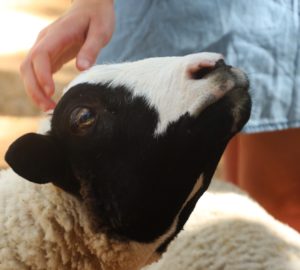Understanding Animal Rights vs Animal Welfare with Sale Ranch Owner, Jen Sale
It’s Animal Rights Awareness Week, so we wanted a fresh take from the owner of Sale Ranch Animal Sanctuary, Jen Sale. Sale Ranch Animal Sanctuary was started as a horse rescue, and quickly turned into a full farm animal sanctuary after Jen learned about the horrors of dairy and our food system.
Jen’s dedication to the animals of SRAS is enormous- she is 100% hands-on and works alongside the sanctuary volunteers 365 days a year to ensure each resident receives the best care possible. We asked her a few questions about Sale Ranch and her passion surrounding animal rights.
1. What does a typical day on the ranch look like for you?
I start my day around 5:30 am with a cup of coffee and a grateful heart. No day looks the same at the ranch. I mean, every day, we feed the animals, clean up paddocks, and provide fresh water. Still, new priorities pop up throughout the day. Medical checks, administering medications, and property maintenance, to name a few. I also spend time in the garden, starting seedlings, and planning for the next growing season.
I also oversee and manage our PR and social media efforts, promoting Sale Ranch in the local community and spreading our message of compassion and kindness. Most weeks, I’m planning fundraising events, networking farm animals in need, interviewing potential new volunteers, and even arranging flowers! Days are never dull!
2. How many animals do you have currently? Do you have a favorite?
We have 100 animal residents that currently call Sale Ranch home. No comment on a favorite! That would get me in trouble with the other 99 animal residents!
3. Do the animals you save stay with you for the rest of their lives or is it more common to link them with another farm in your network?
All animal residents who come to Sale Ranch stay here for life except a few. For example, we currently have rescued four kittens dumped locally on the side of the road a couple of weeks ago. We are now fostering and providing medical care. Once cleared, we will place them into approved homes.
That said, much time is spent networking and finding permanent homes for animals that Sale Ranch cannot help directly due to space and resource limitations. We work with other sanctuaries to find sanctuary or pet homes for farm animals in urgent and medical need.
4. Was it a difficult decision to leave your nursing career to go full-time at the sanctuary?
Serving farmed animals is an absolute honor, and I feel incredibly blessed every day to serve them and share their stories. Many organizations help people, but not many people choose to dedicate their lives to advocating on behalf of animals that most of society ignores or only see as production units.
I will always cherish my time in the medical field and the joy it brought me, knowing I was doing my part to help people. I take many of my experiences and knowledge into my work now that not only helps farmed animals but also enables me to continue to help humans with home-grown organic food donations and through animal therapy.
5. You mention being “off-grid” a few times on your website, what does that mean specifically and why is it important to you and/or your work?
Animal agriculture is the leading contributor to climate change and an industry that requires a massive number of resources to support it. We want to not only advocate for the well-being and treatment of farmed animals but also actively invest in and protect the earth we all call home.
By running the sanctuary with sustainable practices, we can reduce our carbon footprint and show how regenerative methods can help the planet, even on a small scale. Some practices we have put into place include:
- Solar panels, storing power in batteries to pull from at night, as we are not connected to any public utility at all.
- Well water, drawing water from the ranch’s ground
- Organic farming, feeding our animals fresh produce seven days a week
- By composting our animal residents’ manure, we decrease our waste and can create “black gold” that feeds the garden and helps the plants grow
6. Tell us about your youth program, how’d that start? Do any of the kids go on to work in the sanctuary later on or otherwise work with animals?
We feel it’s essential to connect our animal residents and mission to folks in our community. To educate in ways that are kind, truthful, and without judgment. We offer high school students the opportunity to earn their community service hours by volunteering. The kids work hard in cleaning and learning about the animals and their care.
Our garden sensory program (for children ages 6 to 12) is launching this summer. The program teaches basic regenerative methods and explains why “eating the rainbow” is exciting and good for us. The class includes an opportunity to create an art project and plant a seedling to take home to grow. We also plan to acquire additional acreage to develop our two intern programs, animal science and permaculture internship programs, promoting animal compassion and food accountability.
Past high school student volunteers have gone on to vet school, started an animal rescue, and one is currently in law school looking to specialize in animal rights. We are always excited to see how Sale Ranch inspires our young volunteers to pursue their dreams for a more compassionate and kinder world for all species.
7. The information you have on the meat and animal industries is pretty grim: particularly the bit about 92% of horses shipped for slaughter are in good condition. If there is one key stat or fact, you’d like all our readers to know, what would it be?
There are many ways that horses end up in the meat pipeline. The horse racing industry, rodeo, and general backyard breeders all contribute significantly. Horses, unfortunately, are commonly overbred, with owners looking for “the one” to make them money. In addition, the Bureau of Land Management continues to round up wild mustangs from public lands to accommodate cattle ranchers. Many of those captured also end up in the meat pipeline.
Millions of farmed animals (cows, pigs, goats, sheep, chickens, etc.) are artificially brought into existence and killed yearly in the name of food. Most are babies or used-up mothers with little to no welfare laws to protect them. Farmed animals are no different from you and me; we all feel pain, peace, sadness, and joy. As humans we have the choice and can live healthy, happy lives without causing harm to others.
8. It’s animal rights awareness week, so what can our readers do in their daily lives to help the types of animals you save?
The food industry is like any for-profit business and responds to supply and demand. The most significant impact one individual can make is to reduce or remove animal products from your diet and retail purchases. You can move the gauge and create less demand for animal products/bi-products by choosing more compassionate and plant-based options.
Try alternative products that do not test on animals or use their by-products. Another way you can help is by supporting plant-based and vegan companies. Also, spread the word and share your knowledge on exploitative practices. You can only make better, more informed decisions when you know more.
9. How can our readers help your work specifically?
There are many ways that the community can help the work at Sale Ranch:
- Sign up for our monthly newsletter and subscribe to be a monthly sponsor at https://saleranch.org/donate/.
- Attend our fundraising events – Our Annual Gala, “An Enchanted Evening,” is on Saturday, July 9th – check out https://saleranch.org/events for details and to purchase tickets.
- Follow Sale Ranch and like and share our posts on Facebook and Instagram.
- Purchase our fabulous Sale Ranch merchandise.
- Submit your donations to a work-match program if it is available to you.
We can all make a difference in animals’ lives, no matter where we are in the world. Use this Animal Rights Awareness Week to make a difference!



